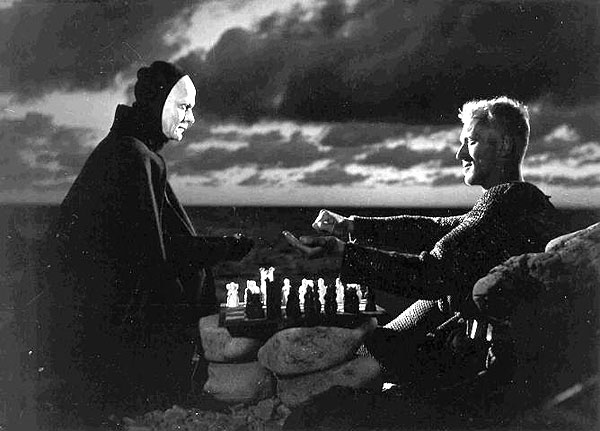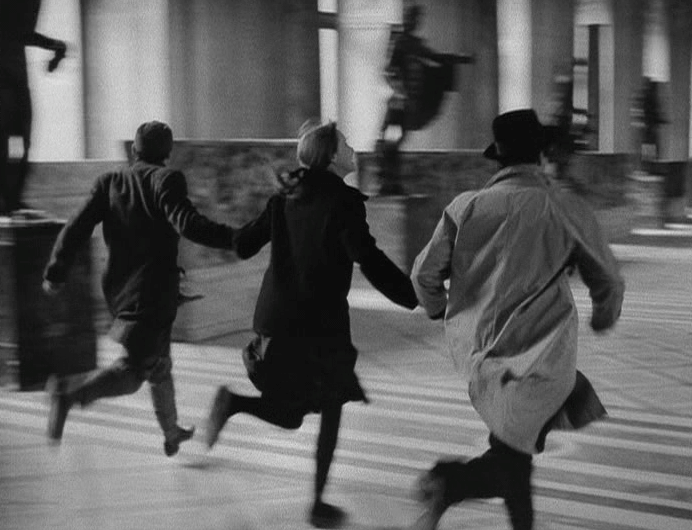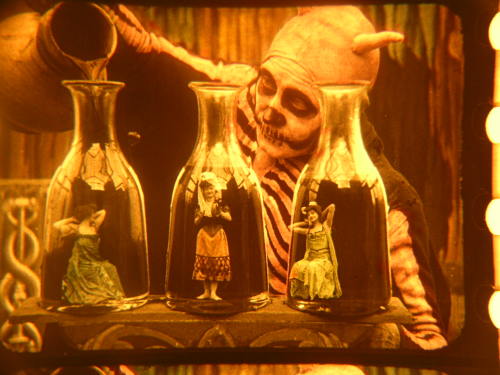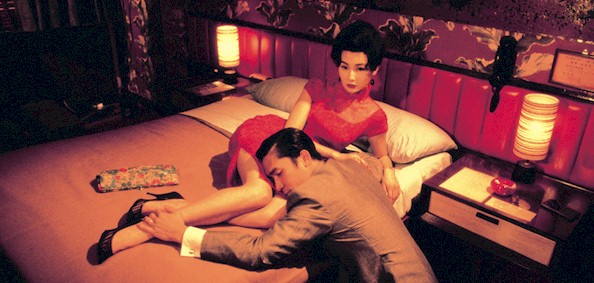It's like two grindhouse movies stuck awkwardly together, with a sudden shift in tone and authorial vision. The first half if like hyperbolic Tarantino, with some of his most risqué and blatantly tasteless plot twists. The second half is Rodriguez going super cheesy and over-the-top with his porno horror comedy. Horror comedies never really work out, and this is no exception to that general rule. Yet there are some clever sight gags: a cross made out of a shotgun, a collection of trucker bric-a-brac, holy water filled condoms and water guns, a disco ball turned into a rotating gun of sunlight. A strange sentimentality and attempts at emotion that pervade the second half of the film strike as a little too much, and out of place amongst the mayhem -- and perhaps this entire stew is purposely incongruent.
Like most of Tarantino's scripts, there is a pervading element of morality, as characters grapple with conventional ethics. A rape motif runs through, with Tarantino himself as a crazed, raping, murdering and 'a little bit slow' psychopath -- and is unsurprisingly the most memorable character of the bunch. He doesn't understand basic ethics, and has a child-like behaviour mixed with brutal sadism, like an id gone wild. But is it the most powerful evidence I've seen yet of Tarantino's ideological problems? Oh yes.
B-
CSA: Confederate States of America (Willmott, 2004)
-as subtle as producer Spike Lee's Bamboozled, but thankfully without the awful melodrama.
-too much emphasis on race, and a belief that it is not the insidious and sly racism but the over-the-top minstrelsy that dominates American race relations
-full of questionable historical revisionism: Canada as Russia? Slavery really still exists?
-acting in commercials, recreations and meta-media is too hokey and corny, far beyond tongue-in-cheek into the eye-rolling.
-cheap jokes are the most effective
C
Galaxy Quest (Parisot, 1999)
-goofy, silly, obviously clever but still a delight. It doesn't bite too deep or too harshly, so that genuine fans of science fiction and acting has-beens will laugh at themselves rather than feel offended. It's gentle jabbing instead of mocking, and more of a celebration of Trekkie geekery than a tear-down.
-inventive visuals
-quick and clean narrative, a game cast (although more to be desired with the female roles, the only two worth mentioning inevitably love interests).
B
Winter's Bone (Granik, 2010)
Chilly drama
-Jennifer Lawrence's star-making performance is lived in, with nary a false note
-some could accuse the film of painting a portrait of the coal belt as a backwards cesspool, but instead the film is really showing the underbelly of any society: we do see so-called 'normal folk' doing normal things, like going to school or running a farm that is more than just scraping by.
-haunting moments, like in the climatic boat scene
-beautiful cinematography
A
Lock, Stock and Two Smoking Barrels (Ritchie, 1998)
Tarantino-lite, with far too many self-consiously clever twists and turns. The plot is near impossible to follow, and I had no real desire to actually figure it all out, unlike the best of the subgenre. It's not thrilling, it's exhausting. Best moments are in the English goofiness and violent slang.
C
The Young Victoria (Vallee, 2009)
I'm a sucker for handsome costume dramas, and this one didn't let me down. Yes, the narrative is a bit too condensed, and ends awkwardly, but the production design is absolutely stunning and the acting top-notch. Jean-Marc Vallee directs with flair.
B+
Valhalla Rising ()
Molasses-slow and groggingly "heavy", elliptical to a fault. As a mood piece it's near parodic, but when it works, it is intense: a drug trip with droning guitars is simply stunning.
C-
Bernie ()
Rather delightful comedy with a fantastic leading performance by Jack Black. Just the right amount of whimsy, kitsch and dark humour, with a mockumentary twist that actually works quite well. Unsurprisingly, some of the real townsfolk were involved in the making of the film and even show up as interviewees.
B+































